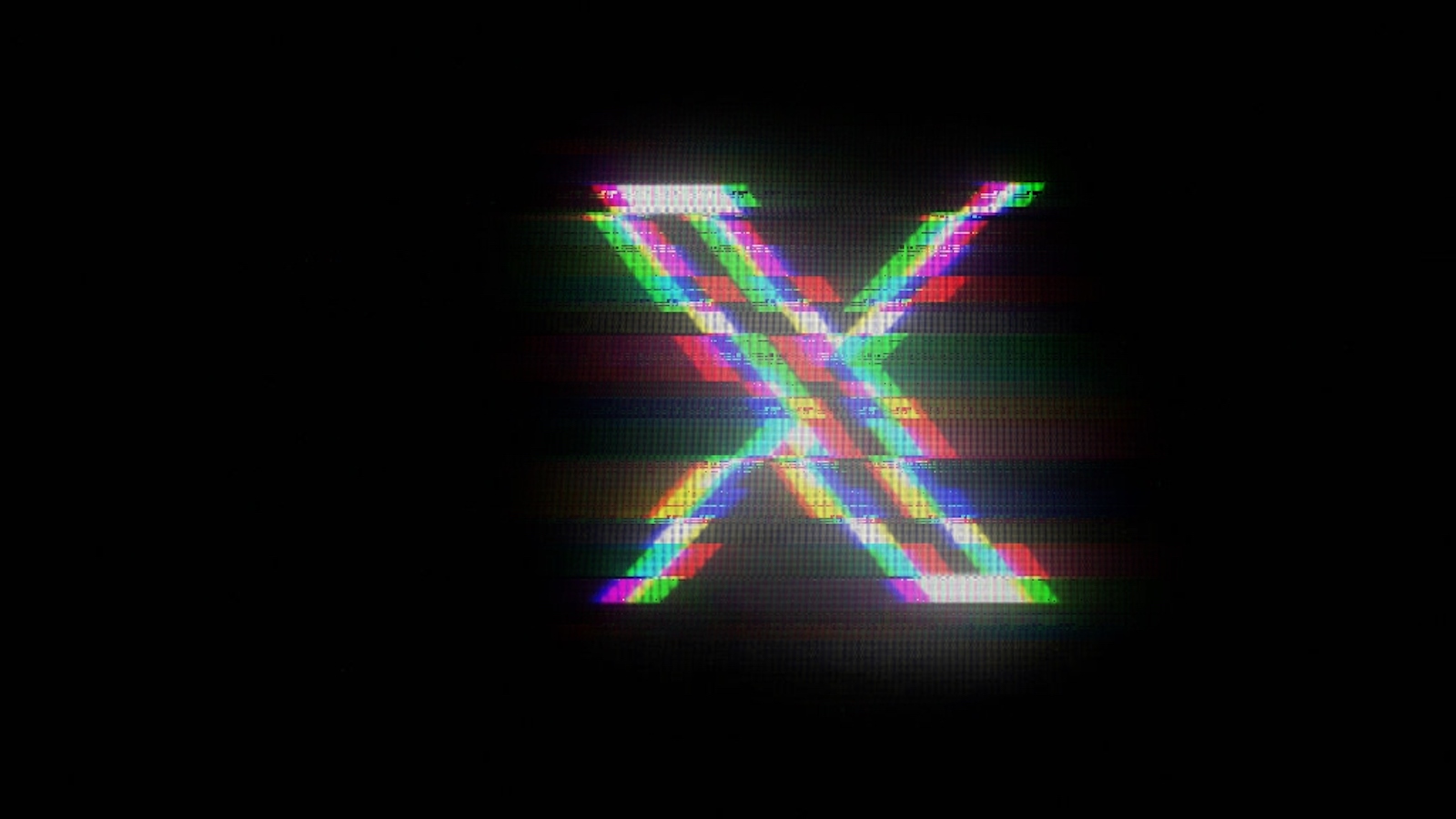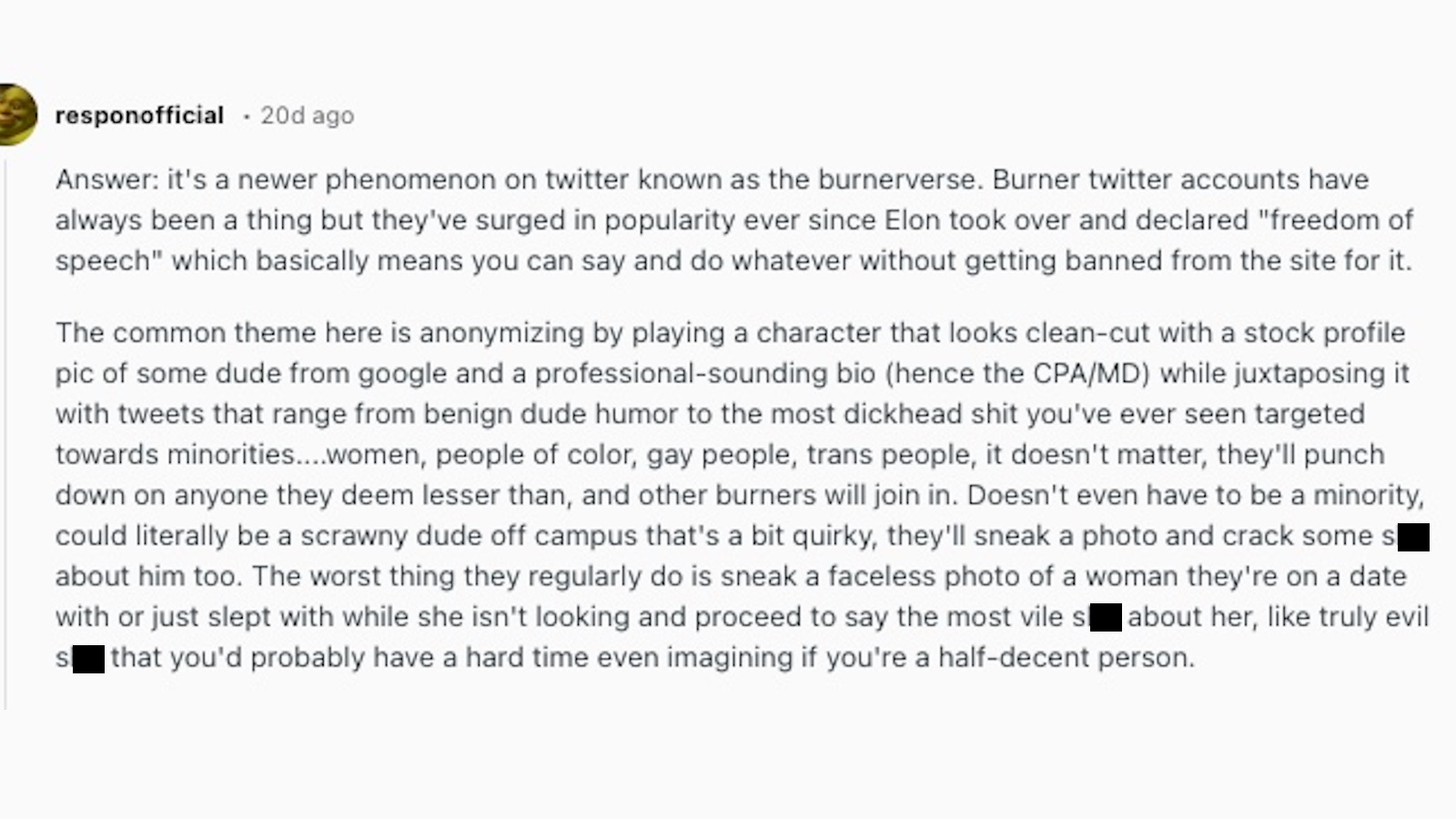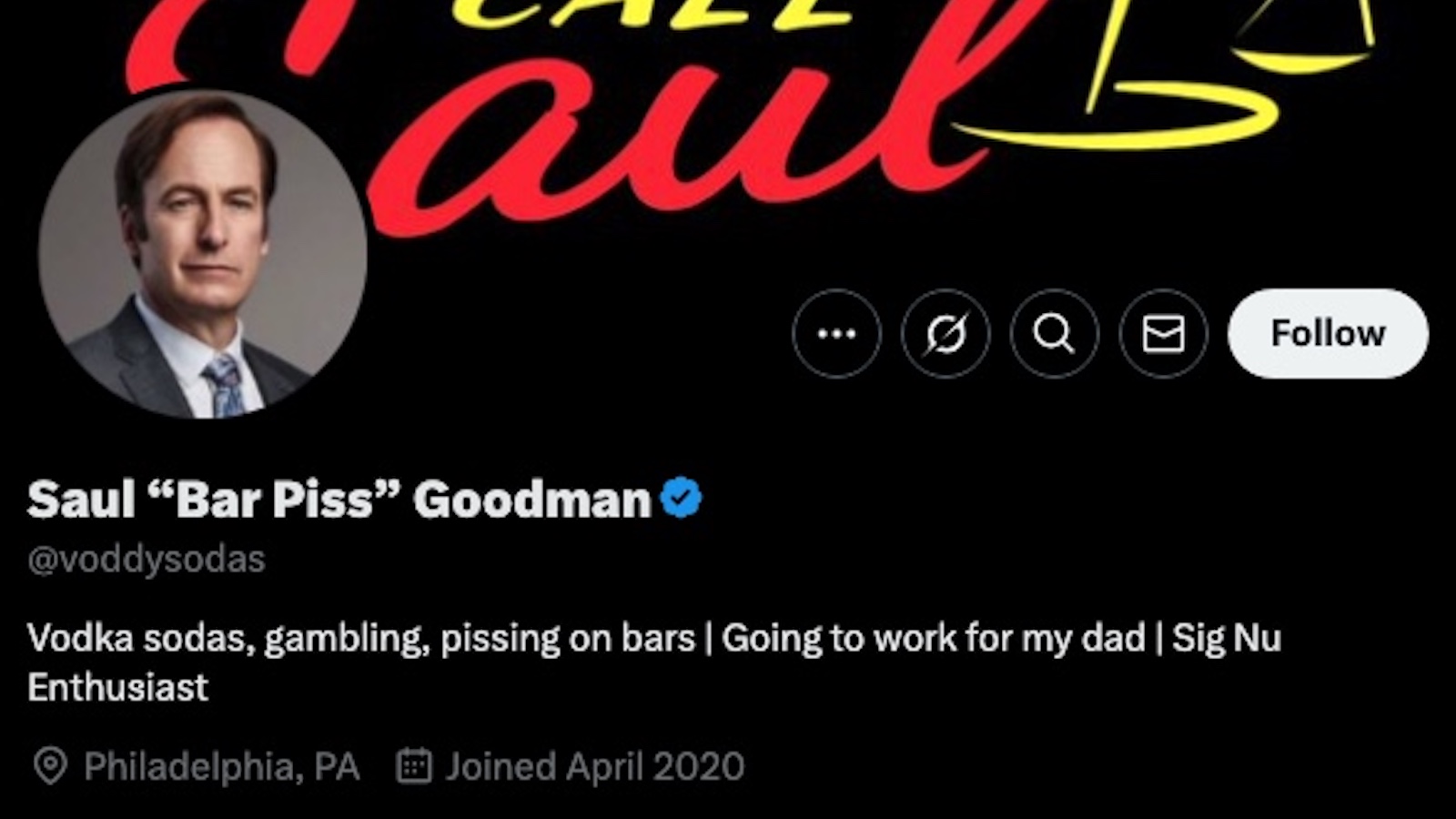
Getty Image
To my generation, the millennials, the point of a “burner” account on social media — similar to the practice of using and discarding a cell phone that the phenomenon was named after — was to be low-key, to fly under-the radar; to allow yourself to lurk anonymously, free of attention, unburdened by recognition. In the post-Elon Musk world of X, though, the “burner” is no longer just a personal and private alias, but an entire universe.
In another instance of borrowing parlance from a separate facet of culture, the “Burnerverse” seems to derive its names from the “multiverse,” the storytelling technique that’s exploded over the last half-decade or so due to its popularity within the Marvel Cinematic Universe. What the idea of a “universe” suggests is that there’s lore: an entire cast of characters, dictionary of slang — “LANK”, “Expand” and “Shrink” [the game] being among them — familiar themes and tones, and so on.
When it comes the MCU, those themes are classic dramatic conundrums like loyalty, duty, purpose, fate, etc. In the Burnerverse, the pillars upon which its built are something far more toxic, far more unhinged, as its culture appears to be centered around misogyny, binge-drinking, drug-using, gambling, racism, homophobia, etc. — essentially the tenor of “guys being dudes” from a bygone era, an era before social media.
The content you find on the Burnerverse is pretty consistent throughout: photos of dingy college living rooms with multiple TV screens and beer memorabilia adorning the walls; talk of sexual escapades, sometimes accompanied by an obscured photo of the young woman or a quick pic of her living situation; cocaine bags tucked in Zyn tins; intentionally aggressive approaches on dating apps; and so on.
Earlier this year, a fake story about an Ole Miss freshman sleeping with her boyfriend’s husband blew-up to such extremes that it was discussed on The Pat McAfee Show. That story first gained traction on the Burnerverse, which is undoubtedly where McAfee and his crew got wind of it.
As is tradition when it comes to the internet’s most niche question, though, our friends over on Reddit provided the most comprehensive analysis of what the Burnerverse actually is.

“Every other tweet I see is some combo of racist, homophobic, sexist, or just the most outlandish s— you’ll ever read,” a college-aged student from the Pittsburgh area who engages in the Burnerverse tells me.
Comments from an account called ‘Saul Bar Piss Goodman’ — a mildly popular Burnerverse figure with close to 2,000 followers who claims he would not post something that does not reflect his actual opinion — corroborates the above analysis, saying that while he’s “not a homophobe,” he will post jokes touching on homophobia on his page.
When pressed and asked if the Burnerverse is ultimately rooted in those controversial outlooks, however, Saul Goodman admits, “I wouldn’t say rooted in that but it’s a part of it… I think this is the anti-Cancel Culture forum.”
“I’m not homophobic, but anything I think that is funny that isn’t too bad, I’ll go for.”

The umbrella of homophobia doesn’t even begin to cover the subject matter in one of Saul’s more recent viral posts, as he shared photos of an AI-generated fitness model with Down syndrome and told his followers that he “would” (and that those who disagree should argue with a wall).
The post has over 5,000 likes and almost half-a-million views on X. Despite saying that he only posts content that reflects his genuine opinion, Saul argues the AI fitness model “falls into a different category” and should not be taken at face value, claiming he’s merely expressing what he believes “everyone” is thinking through the humorous prism of Saul Goodman, the fictional seedy lawyer from the beloved Breaking Bad franchise.
“That falls into a bit of a different category. It’s more so of that everyone’s thoughts are ‘S—, she’s kinda hot’. Obviously, you would never actually pursue this, but as Saul instead of actually me, it’s funny to say I’d bang her.”
This insight further digs into where a burner account ends and where its user begins; how much is parody and how much personality; and what responsibility the users feel for delineating those two things. While Saul is clearly playing a character — one that already exists within pop culture — he also says that “a ton” of his personality comes through in the account. Whenever a line may potentially be crossed, the account user can seemingly put their hands up and say, “That’s not me — that’s Saul.” It’s all good man.
Sometimes, even the cover of a burner isn’t enough to prevent its wake from quaking in the real world, as evidenced by the doxxing of an account called “Murray Hill Guy” — one of the most controversial Burnerverse accounts on X — last fall (the Murray Hill Guy account did not respond to our interview request).

“It should go without saying that internet personas are not real. This account was started by a group of friends who just wanted to have some fun,” the account posted in the wake of the doxxing.
“Nothing this account ever did was intended to be malevolent. Posting Hinge screenshots, poking fun at the dating discourse, and doing an ‘alpha male’ bit may have been cringe, but the people reveling in the doxxing and firing of an individual they’ve never met for the sole crime of being mildly offensive online are the bad guys in this story. Twitter engagement and ad revenue bux are a hell of a drug, and I guess I got carried away on here. At the end of the day, however, MHG never threatened anyone or engaged in targeted harassment. As such, I don’t have a lot to apologize for. If you were offended by my tweets, I’m sorry you felt that way, but the block and mute buttons are very easy to press.”
Guy whose whole schtick is casual misogyny crashes out when a woman lobs it back at him https://t.co/zy6MF5YG7Y pic.twitter.com/lfJJQCGUai
— carl marks (@lethalrejection) March 28, 2025
The ability to say whatever you want has always been a feature of the “burner” account — but a decade ago, those accounts were trying to do so as quietly as possible. The notion of a “popular burner” was antithetical to the very idea. Now, achieving virality seems to be the point of these accounts, particularly in the post-Elon era of content creators being able to cut a check. This has further complicated the notion of the burner, with a 19-year-old Big 10 college student running an account named ‘Ken’ telling me that some of what he posts is made up entirely, fabricating both experiences and opinions. Yes, you read that correctly: fake racism for the sake of views, likes, and reposts.
“A lot of what I post is to fit the Burnerverse and what would make good content. I feel that a lot of it is radical but a lot of what I post is purely to see how much engagement I can get…. Most of it [the Burnerverse] is satirical and that’s what I find funny,” Ken said. “I understand that I do have racist posts but I feel like I try to stray away from it just because even though I am anonymous, I am aware of the risks and that I am still posting online for everyone to see.”
“Part of the racism is more of a shock factor, it’s not something that you really see in a lot of media. Not that I condone it, and I do understand that I’m contradicting myself, but for the sake of content and engagement, I think that racism has done well. Sounds terrible now that I’m writing it out, but it’s what’s worked for others. I feel I started just trying to share funny stuff with my friends and now it has almost turned into a popularity content — I like when my posts do well.”
‘Sgt. Blackout’, a mid-20s guy from Philly who’s got over 50,000 followers, compared the jokes on the Burnerverse to a comedian unfurling a punchline on stage. “I think you would have to be pretty stupid to actually think [these] posts are serious,” he says.
The man running the Sgt. Blackout account, which was given to him by a friend after his old account got banned, says he began to blow-up in December 2024 — take one look at his profile and you’ll see that viral momentum came via a tweet in which he extensively analyzed the body of an anonymous woman who surely was unaware that her photograph was shared on social media. A quick scroll through the replies of that post will tell you all you need to know about the general tone and tenor of the Burnerverse.

When I point out that comedians — unlike burner accounts — stand on stage projecting their face and their name to the public, thus adding a far deeper layer of responsibility and subsequent consequence, Sgt. Blackout retorts the anonymity of Burner Twitter is the point of the comedy, as the discretion allows for a no-holds-barred approach that would not otherwise be possible using public personas.
“That’s the whole part that makes the Burnerverse so great and if it lost its key value of being incognito it wouldn’t be as funny and would lose part of the element that originally made it funny,” he adds.
“If you are asking if I am a Neo Nazi or support it, I don’t , but I will joke about it.”
Hitler really had vision man pic.twitter.com/zoIvTlaSf5
— Sgt Blackout 🫡 (@coldcallsniper) March 26, 2025
The Burnerverse is largely populated by one demographic: college-aged or post-grad males. Where they are, what they do for a living, how they were raised, etc. is seemingly irrelevant: the through-line of the Burnerverse remains constant, and that’s because what it’s ultimately a window into is not Gen Z, but the male lifestyle from your teens into late 20s.
What these accounts are posting about — saying sometimes-vaguely, sometimes-explicitly offensive things, chasing girls, doing drugs, bragging about cashing bets and blacking out — have always been the fundamental American college experience, at least for a certain section of the student body. The snapshot of the lifestyle being filtered through these accounts is no different from than what my buddies and I did at Rutgers a decade ago. But what’s changed is its proliferation, its contentification, which has ultimately turned the idea of a burner into something else entirely: no longer is a burner for staying in the shadows, they’re about glorifying what happens in them.
And what does it mean when an intrusive thought becomes a published one? We’ve all surely *thought* terrible things in our lives — does saying them out loud, or documenting them for strangers on the internet, indicate a deeper level of depravity, a further erosion of basic decency? Or are they merely the result of a generation growing up with a screen in their face from the moment they could talk?
A white boy gonna speak a little Ching Chong tonight if no one minds. pic.twitter.com/MYMb9tDRsA
— Justin Senderson (@jsendzz) March 29, 2025
The Burnerverse isn’t unique to young men, however, as a 21-year-old woman at a Big 10 school tells me that most of her female friends engage and are active in the social media ecosystem. The female perspective of the Burnerverse introduces an entirely different discussion, as, unlike male burner accounts, their content thrives in its replies. There’s an Instagram element to their photos — fit pics, etc.– but unlike Instagram, the responses they receive are entirely unfiltered. And it’s not implied misogyny; it’s direct, explicit, mean.
“Some of them are absolutely insane and out of pocket, but I don’t take them serious like ever — the whole BV concept is just a fun, dumb inside joke with a bunch of other bored people tbh it’s fun,” a young lady with the handle @MrsLocal305 said. “The replies can get kinda crazy, but the only ones that bother me are the ones claiming I have an eating disorder or anything pertaining to my body.”
Despite the usually aggressive nature of burner accounts, @MrsLocal305 says that she’s met up with someone she’s met via the community — she did so with her friends, in a public place, with the intent of it being a friendly and not a romantic encounter. She’s also dated someone with a burner, and going forward, would want to know if her significant other operates an account.
“I dated someone in a fraternity last year for about 9 months and I will say after being around those types of men, some guys are genuinely like that and not playing a character and it’s a common thing… A lot of burners take the chance to say racist/awful things to people since we don’t show our faces, and that’s the part I do not agree with. If someone I’m with intimately is doing that, I would wanna know so I don’t speak to them — I just don’t think being cruel is the point of a burner.”

Some women seem to be open to sexual approaches via the Burnerverse, as an NJ post-grad who asked to remain anonymous told me she’s slept with someone she met over Twitter (although she does not think that’s something she’d do again despite the positive experience).
“I literally had sex with someone I met off Twitter… They DMed me, found my Twitter — I don’t know how though… They were a burner and I made them send a photo of themselves like multiple, and then got their Insta and, then moved to texting.”
What’s ultimately inescapable about these burners is that they create an avenue for the men and women behind them to speak, act, behave in whatever manner they want without the fear of consequence, a key component of Trump-era America, particularly at the top of his second term.
“My personal goal is make people laugh and tweet whatever the f— I want without someone b——- at me for it,” the aforementioned Pittsburgh-area bro told me. “And I think most burners goal is to tweet s— people find funny and to talk ball… Some people just get more extreme than others.”
One phrase that kept coming up in my conversations with these burner accounts was the idea of having a ‘dark’ sense of humor, which many of them believe to be the foundational aspect of the Burnerverse. But what does “dark” mean, exactly? Is it “Norm Macdonald on the death of the Crocodile Hunter” dark? Or “the ability be racist without remorse” dark? Both a casual and deep dive into the Burnerverse illuminates that the comedic construction lacks the nuance of Norm and trends more to the controversial stylings of Rob Schneider, to say the least.
The idea of a burner — whether it be the way they were used a generation ago or now — introduces an inherent moral question, however, that’s only become more unavoidable in the wake of the Burnerverse. If you’re posting something anonymously, then you’re likely doing so because it’s bad. And if you know it’s bad, and you’re posting it anyway, then what does that make you?
This is not to suggest that anyone or everyone who operates a burner account is “bad” or have ill-intentions — what it does speak to, though, is the indisputable fact that they’re being used a tool to behave in a way in which their users know wouldn’t be socially acceptable otherwise, inverting and potentially destroying the age-old adage that suggests “You are who you are when nobody is watching.” These burner accounts may be faceless, but they’re people all the same — perhaps more so than the very people behind them even realize.